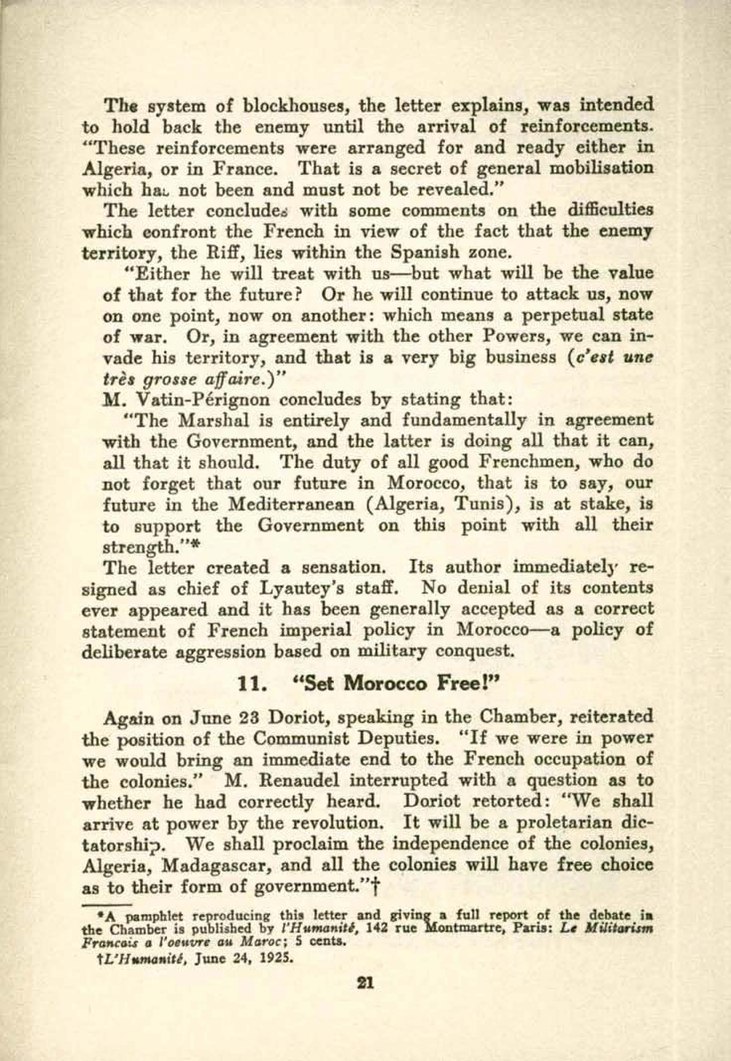The system of blockhouses, the letter explains, was intended to hold back the enemy until the arrival of reinforcements. "These reinforcements were arranged for and ready either in Algeria, or in France. That is a secret of general mobilisation which has not been and must not be revealed."
The letter concludes with some comments on the difficulties which confront the French in view of the fact that the enemy territory, the Riff, lies within the Spanish zone.
"Either he will treat with us—but what will be the value of that for the future? Or he will continue to attack us, now on one point, now on another: which means a perpetual state of war. Or, in agreement with the other Powers, we can invade his territory, and that is a very big business (c'est une très grosse affaire.)"
M. Vatin-Pérignon concludes by stating that:
"The Marshal is entirely and fundamentally in agreement with the Government, and the latter is doing all that it can, all that it should. The duty of all good Frenchmen, who do not forget that our future in Morocco, that is to say, our future in the Mediterranean (Algeria, Tunis), is at stake, is to support the Government on this point with all their strength."[1]
The letter created a sensation. Its author immediately resigned as chief of Lyautey's staff. No denial of its contents ever appeared and it has been generally accepted as a correct statement of French imperial policy in Morocco—a policy of deliberate aggression based on military conquest.
11. "Set Morocco Free!"
Again on June 23 Doriot, speaking in the Chamber, reiterated the position of the Communist Deputies. "If we were in power we would bring an immediate end to the French occupation of the colonies." M. Renaudel interrupted with a question as to whether he had correctly heard. Doriot retorted: "We shall arrive at power by the revolution. It will be a proletarian dictatorship. We shall proclaim the independence of the colonies, Algeria, Madagascar, and all the colonies will have free choice as to their form of government."[2]
21
